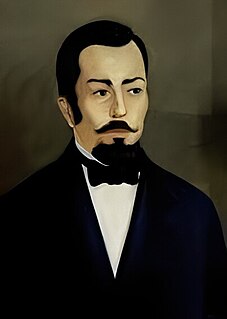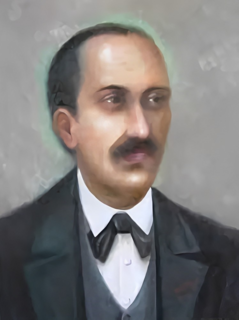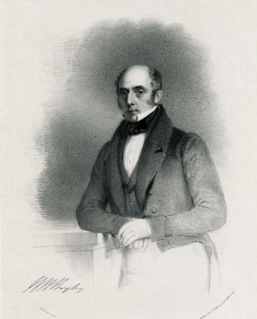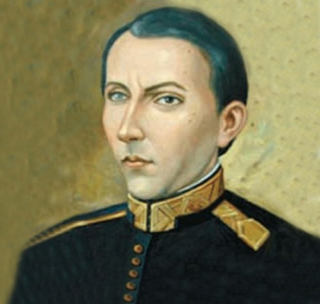Related Research Articles

Violeta Barrios Torres de Chamorro is a Nicaraguan politician who served as President of Nicaragua from 1990 to 1997. She was the first and, as of 2022, only woman to hold the position of president of Nicaragua.

The president of Nicaragua, officially known as the president of the Republic of Nicaragua, is the head of state and head of government of Nicaragua. The office was created in the Constitution of 1854. From 1825 until the Constitution of 1839, the head of state of Nicaragua was styled simply as Head of State, and from 1839 to 1854 as Supreme Director.

Juan José Alvarado (1798–1857) was Supreme Director of Honduras from 15 April 1839 to 27 April 1839.
José Núñez was a conservative Nicaraguan doctor and politician who served as the 11th, 13th, and 15th Supreme Chief of Nicaragua, and 1st Supreme Director of Independent Nicaragua.

Patricio Rivas was a liberal Nicaraguan lawyer and politician who served as Acting Supreme Director of Nicaragua from June 30, 1839 to July 27, 1839 and from September 21, 1840 to March 4, 1841. Later he served as a President of one of the several competing governments of Nicaragua from October 30, 1855 to June 24, 1857. However, he was merely a puppet president; rule was held by William Walker. He belonged to the Democratic Party.

Joaquín del Cossío was a Nicaraguan politician, member of the Legitimist Party who served as acting Supreme Director of Nicaragua on two occasions, first alongside Evaristo Rocha until May 15, and again from July 27, to October 20, 1839.
Hilario Ulloa was a Nicaraguan politician who served as acting Supreme Director of Nicaragua from October 20 to November 7, 1839.

Norberto Ramírez Áreas was a Nicaraguan lawyer and politician who served as acting Supreme Chief of El Salvador, still technically a part of the Federal Republic of Central America, and as the 6th Supreme Director of independent Nicaragua.

José Laureano Pineda Ugarte was a Nicaraguan lawyer politician who, as a Senator in the Legislative Assembly and member of the Democratic Party, was appointed to serve as 7th and later 8th Supreme Director of the State of Nicaragua on three occasions. originally elected on 1 April 1851, later in dissidence in Honduras after being removed from office as a result of a military coup led by José Trinidad Muñoz, and finally alongisde Fulgencio Vega from 11 November the same year.

José Fruto Chamorro Pérez was a Nicaraguan politician and military scientist who served as 10th Supreme Director of Nicaragua and 1st President of Nicaragua.

William Butterworth Bayley (1782–1860) was acting Governor-General of India during the period March–July 1828. Bayley was a member of the Bengal Civil Service (1799–1830) and a director and chairman of the British East India Company (1834–1858).
Manuel Antonio Blas Sáenz was a Nicaraguan politician who served as acting Supreme Director of Nicaragua from January 24 to April 4, 1845. From January 20 to 24, he served as provisional Supreme Director based in the city of Masaya, against the government of Silvestre Selva.

José María de la Cruz Guerrero de Arcos y Molina was a Nicaraguan lawyer and politician, member of the short lived centrist Republican Party, who served in the 1839 Honduran Council of Ministers and as the 5th Supreme Director of Nicaragua from 6 April 1847 to 1 January 1849.
The modern history of Honduras is replete with large-scale disappearances of left-leaning union members, students and others. The legislature approved a new constitution in 1982, and the Liberal Party government of President Roberto Suazo Córdova took office. Suazo relied on United States support — including controversial social and economic development projects sponsored by the United States Agency for International Development — during a severe economic recession. According to the US State Department, "Honduras became host to the largest Peace Corps mission in the world, and non-governmental and international voluntary agencies proliferated."

The White House Office of Public Engagement is a unit of the White House Office within the Executive Office of the President of the United States. Under the administration of President Barack Obama, it was called the White House Office of Public Engagement and Intergovernmental Affairs. President Donald Trump restored the prior name of the White House Office of Public Liaison and separated the White House Office of Intergovernmental Affairs. President Joe Biden changed the name to the White House Office of Public Engagement but retained Trump's separate Intergovernmental Affairs Office in his administration.

The National Nicaraguan Police Force is the national police of Nicaragua. The force is in charge of regular police functions and, at times, works in conjunction with the Nicaraguan military, making it an indirect and rather subtle version of a gendarmerie. However, the Nicaraguan National Police work separately and have a different established set of norms than the nation's military.
The following lists events in the year 2020 in Nicaragua.

José Anacleto Ordóñez Bermúdez (1778–1839), also known as Cleto Ordóñez, and nicknamed "El tuerto Ordóñez" by his detractors was a liberal Nicaraguan soldier, politician and prominent Central American unionist who served as de facto Supreme Chief of Nicaragua from August 1824 to 4 January 1825.
Grand Marshal Casto Fonseca was Nicaraguan military figure and politician who served as the de facto military leader of Nicaragua from 1839 to 1845, preceded by Bernardo Méndez de Figueroa and succeeded by José Trinidad Muñoz.